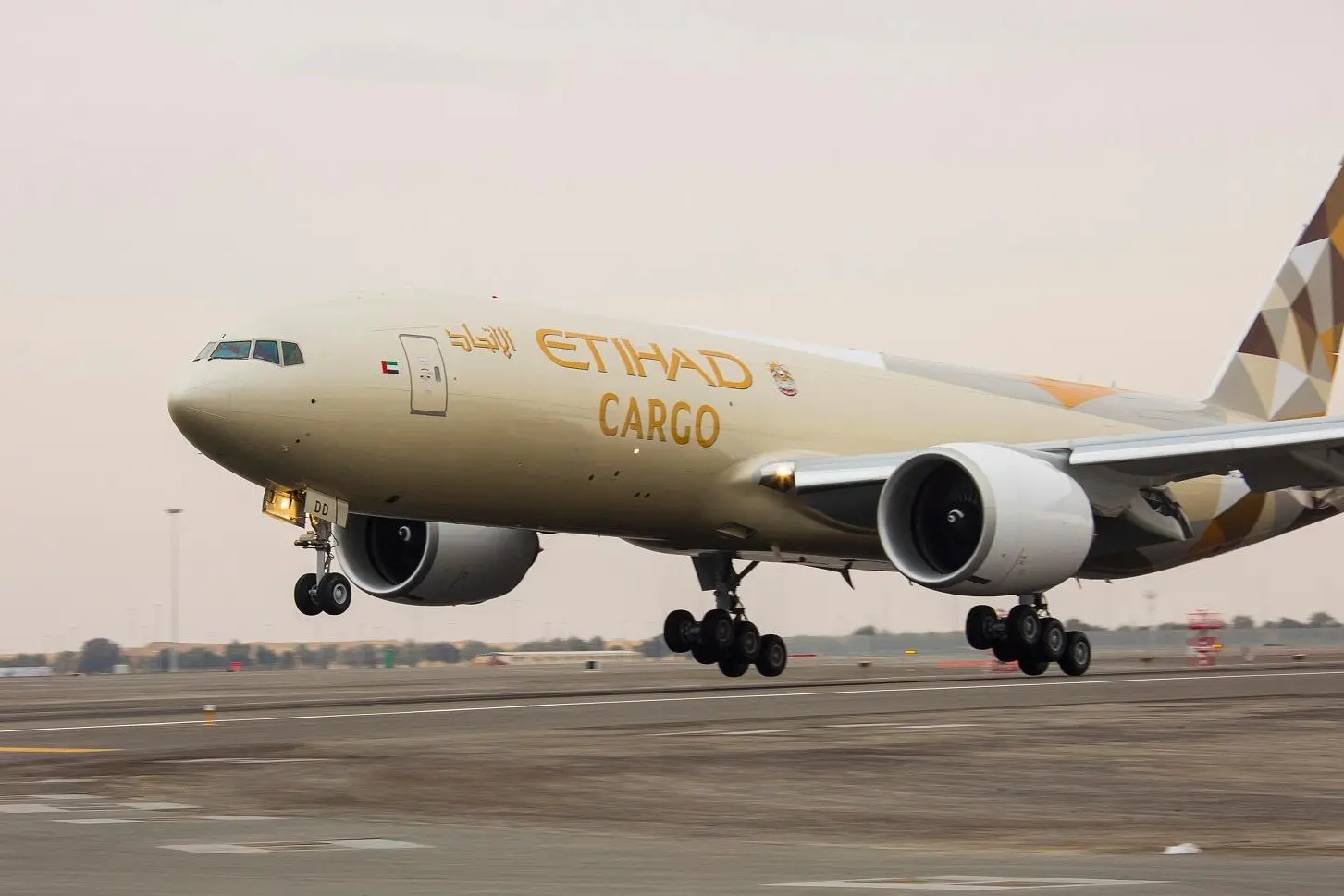PHOTO
15 June 2017
Abu Dhabi's Etihad Airways said on Wednesday it is suspending flights to San Francisco in the United States from October after falling passenger demand curbed the route's profitability.
The flight, launched in November 2014, was already reduced from a daily service to three times a week earlier this year. The move comes as Gulf carriers see their bookings to the U.S. hit as a result of the laptop ban, President Donald Trump’s bid to ban travelers from six Muslim-majority countries and an ongoing war of words between American and Gulf carriers.
Etihad’s decision is in contrast to rival Qatar Airways, which announced in April it plans to start direct flights to San Francisco early next year, as part of efforts to expand its routes into the U.S.
"We didn't have massive declines like other carriers," Chief Executive Akbar Al Baker said at the time. "We will continue our expansion." The airline has seen "some decline" in passenger demand on U.S. routes, but he said this was manageable.
Rival Dubai-based Emirates in April announced it was reducing flights to five U.S. cities, blaming a drop in demand on new travel restrictions imposed by the President Donald Trump's administration.
"The recent actions taken by the U.S. government relating to the issuance of entry visas, heightened security vetting and restrictions on electronic devices in aircraft cabins have had a direct impact on consumer interest and demand for air travel into the U.S.," an Emirates spokeswoman told Reuters in April.
Emirates last month also announced that it will temporarily cut its daily non-stop service to New York’s JFK down to twice a day. “This decision was made as part of our routine operational review, to ensure that our capacity is deployed to best serve customer demand across our global network,” a spokesperson told Gulf News.
From March 25, the U.S. banned electronic gadgets larger than a mobile phone inside cabins on direct flights to the U.S. from 10 airports in the Middle East, North Africa and Turkey. Dubai, Emirates' hub, was included.
U.S. President Donald Trump's executive orders, signed in January and March, to bar refugees and nationals of several Muslim-majority country in the Middle East and North Africa from traveling to the U.S. also disrupted travel plans of some passengers.
Iran along with Iraq, Libya, Syria, Somalia, Sudan and Yemen were banned under the January order. Iraq was dropped from the March order. Both bans were blocked by U.S. judges.
Emirates said in March that booking rates on U.S. flights fell 35 percent after January's ban.
In early 2015 three U.S. carriers - Delta Air Lines, American Airlines and United Airlines - alleged that Emirates, Etihad Airways and Qatar Airways received more $40 billion in state subsidies during the last decade, claiming this allowed them to drive down ticket prices and push competitors out of key markets. The allegations have been denied by the three Gulf carriers.
Further reading:
© Express 2017
Abu Dhabi's Etihad Airways said on Wednesday it is suspending flights to San Francisco in the United States from October after falling passenger demand curbed the route's profitability.
The flight, launched in November 2014, was already reduced from a daily service to three times a week earlier this year. The move comes as Gulf carriers see their bookings to the U.S. hit as a result of the laptop ban, President Donald Trump’s bid to ban travelers from six Muslim-majority countries and an ongoing war of words between American and Gulf carriers.
Etihad’s decision is in contrast to rival Qatar Airways, which announced in April it plans to start direct flights to San Francisco early next year, as part of efforts to expand its routes into the U.S.
"We didn't have massive declines like other carriers," Chief Executive Akbar Al Baker said at the time. "We will continue our expansion." The airline has seen "some decline" in passenger demand on U.S. routes, but he said this was manageable.
Rival Dubai-based Emirates in April announced it was reducing flights to five U.S. cities, blaming a drop in demand on new travel restrictions imposed by the President Donald Trump's administration.
"The recent actions taken by the U.S. government relating to the issuance of entry visas, heightened security vetting and restrictions on electronic devices in aircraft cabins have had a direct impact on consumer interest and demand for air travel into the U.S.," an Emirates spokeswoman told Reuters in April.
Emirates last month also announced that it will temporarily cut its daily non-stop service to New York’s JFK down to twice a day. “This decision was made as part of our routine operational review, to ensure that our capacity is deployed to best serve customer demand across our global network,” a spokesperson told Gulf News.
From March 25, the U.S. banned electronic gadgets larger than a mobile phone inside cabins on direct flights to the U.S. from 10 airports in the Middle East, North Africa and Turkey. Dubai, Emirates' hub, was included.
U.S. President Donald Trump's executive orders, signed in January and March, to bar refugees and nationals of several Muslim-majority country in the Middle East and North Africa from traveling to the U.S. also disrupted travel plans of some passengers.
Iran along with Iraq, Libya, Syria, Somalia, Sudan and Yemen were banned under the January order. Iraq was dropped from the March order. Both bans were blocked by U.S. judges.
Emirates said in March that booking rates on U.S. flights fell 35 percent after January's ban.
In early 2015 three U.S. carriers - Delta Air Lines, American Airlines and United Airlines - alleged that Emirates, Etihad Airways and Qatar Airways received more $40 billion in state subsidies during the last decade, claiming this allowed them to drive down ticket prices and push competitors out of key markets. The allegations have been denied by the three Gulf carriers.
Further reading:
- Abu Dhabi's Etihad Airways to drop San Francisco route from October
- Qatar Airways to start San Francisco flights closes in on Italy deal
- Emirates airline cuts flights on five US routes
- Emirates airline reduces flights to New York
- Emirates says traveler numbers from US to Iran, Indian Subcontinent slip
© Express 2017





















